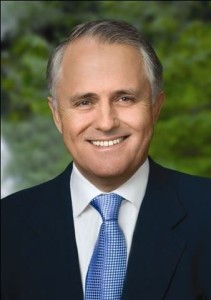- Clinton proposes $250 monthly cap on prescription drug costs (news.yahoo.com)Hillary Clinton targets medicine costs in campaign pledge (drugstorenews.com)Here's Why Biotech Stocks Are Set for a Big Decline (thestreet.com)
U.S. Democratic presidential candidate Hillary Clinton proposed on Tuesday a $250 monthly cap on out-of-pocket prescription drug costs and other measures to stop what she called "price gouging" by pharmaceutical companies….Clinton rolled out a plan to encourage the development and use of generic drugs and to end pharmaceutical companies' ability to write off consumer-directed advertising as a business expense….monthly cap would limit what insurance companies could ask patients to pay for drugs that treat chronic or serious medical conditions.
- Companies struggle to get new medicines adopted across Europe (reuters.com)
Pharmaceutical companies, currently enjoying a bumper wave of new drug launches, are struggling to get recently introduced products adopted in key European markets as governments bear down on costs…. Europe remains a much tougher market than the United States, prompting many companies to offer significant price discounts… European healthcare providers are also pushing hard for the use of cheap alternatives, where available, including...biosimilars.
- For a Rare Disease, Drug Trials Scramble for Patients (wsj.com)
Companies vie for enrollees amid questions that trials will siphon participants away from each other…After years of effort, scientists and families of young patients with the genetic condition Niemann-Pick Type C are in a position to which any rare-disease community aspires: the prospect of not one, not two, but three companies launching clinical trials to develop therapies…the flurry of commercial interest has sparked an urgent debate. Can the community support more than one trial at the same time?
- Kicking off the PDUFA VI Reauthorization Process (blogs.fda.gov)
Prescription Drug User Fee Act authorizes FDA to collect fees from pharmaceutical companies to help fund the agency’s drug review work...provide additional funding for FDA to hire staff, improve systems, and establish a better-managed review process...enables us to do more timely reviews of human drug applications….The current legislation, PDUFA V, is set to expire in September 2017…ideas for further enhancements, including:
- Further efforts to involve the patient perspective in drug development processes;
- Building on FDA’s Sentinel System for active surveillance of safety issues for medical products, including expanding its use as a source of data;
- Enhancing regulatory science initiatives, including the use of patient-reported outcomes and biomarkers.
- Australia’s new PM looks to biotech for a boom as mining-led growth wanes, WSJ says (fiercepharmaasia.com)
R&D tax incentives combined with a former investment banker as the country's new prime minister could see steady growth in biotech in Australia gain momentum,…Australia was ranked fourth globally for biotechnology innovation last year,..lags top player in biotech the U.S. by a wide margin…former Goldman Sachs banker Malcolm Turnbull as premier…portends a new push in the sector…I can see biotech and medical tech really transforming Australia..
- 5 Big FDA Decisions Expected in September (247wallst.com)
Pharmaceutical companies usually are involved in a lengthy process in getting their drug candidates to market through clinical trials. There is a fair amount of risk involved,..should a study come back negative or should a candidate not be approved. Conversely, if a drug is approved or passes a clinical trial, there can be big upside. Food and Drug Administration rulings can make or break these companies…. big FDA decisions coming up on the calendar for the month of September..
- Opko Health - expecting a rolapitant PDUFA (Prescription Drug User Fee Act ) action date on September 5. (prevention of chemotherapy induced nausea and vomiting)
- Tesaro - tag along with Opko, has a New Drug Application for oral rolapitant under review by the FDA with the same PDUFA goal date.
- Zosano Pharma - completed its enrollment for the Phase 2 trial for ZP-Glucagon. (significant improvement over the currently marketed products for treatment of severe hypoglycemia)
- Xenoport - completed enrollment in its Phase 2 clinical trial of XP23829 as a potential treatment for moderate-to-severe chronic plaque-type psoriasis..
- Apricus Biosciences - enrolled its last patient in its RayVa Phase 2a proof-of-concept study, (Raynaud’s phenomenon secondary to scleroderma)
- Amgen pays $71 mln to settle Enbrel, Aranesp marketing case (reuters.com)
Amgen Inc has reached a $71 million settlement ...to resolve claims that the biotechnology company promoted its popular Enbrel and Aranesp drugs for uses not approved by the federal Food and Drug Administration… Amgen violated state consumer protection laws by marketing both drugs for off-label uses, through its promotion of Enbrel to treat mild plaque psoriasis and Aranesp to treat anemia caused by cancer.
- Taking the opioid crisis to the boardroom – Gloucester police chief urges dialogue with pharmaceutical executives (bostonglobe.com)
Gloucester police, taking an unconventional approach to fighting the state’s opioid epidemic, are imploring people to contact chief executives at five pharmaceutical companies and ask what they’re doing to curb the drug scourge…In a Facebook post this week that was shared more than 500 times, Police Chief Leonard Campanello listed names and contact information…exhorted the department’s....followers to reach out directly to the corporate chiefs to start a conversation about drug abuse prevention… Campanello said he believes that the executives could play a key role in finding a solution to the epidemic, but they "might need a little push" in the form of phone calls and e-mails.
- Value, results center stage in health care (drugstorenews.com)
PwC’s (PricewaterhouseCoopers) Health Research Institute asserted that the reforms spawned by the ACA have left "an indelible mark on the $2.9 trillion health sector."… Those reforms are forcing industry leaders to "rethink strategies to remain relevant in a post-ACA world" as they roil every facet of health care and drive a gradual but sweeping transformation of the way health services are provided and paid for…
- A massive shifting of risk among different health provider sectors as the ACA drives "new payment models that reward outcomes and penalize poor performance."
- A "back to basics" movement that’s "making primary care once again the critical touchpoint."
- A surge of new, innovative companies that are rushing "to meet the demand for lower-cost, consumer-oriented care options
- A shift in the health insurance industry "from wholesale to retail" as insurers adapt to the demands of consumers, federal and state health administrators
- The emergence of states "as key players in the reconfigured healthcare landscape."
- The future of community pharmacy in the United Kingdom (chaindrugreview.com)
Pharmacy is one of the foundational pillars of modern medicine,..community pharmacy is now at a crossroads…revenues are capped, competition is more intense and pharmacies are increasingly expected to play a stronger role in managing chronic conditions…The debate on the sustainability of community pharmacy is not a new one… Five forces will profoundly shape the future of community pharmacy…
- Squeeze on health care budgets
- Intensifying competition
- Transformation of the supply chain
- Emergence of new alternative channels
- Demand for convenience and expertise
To survive…consider these two strategies:
- Improve efficiency of supply
- Become the first port of call in the health care system




